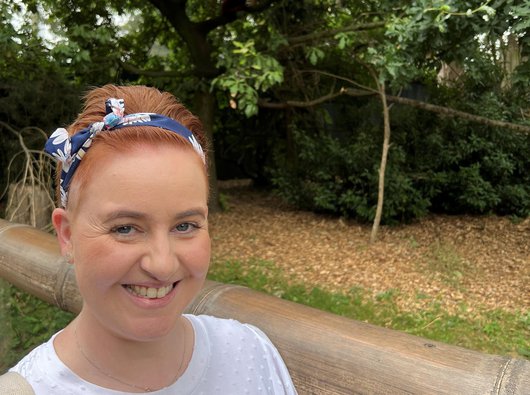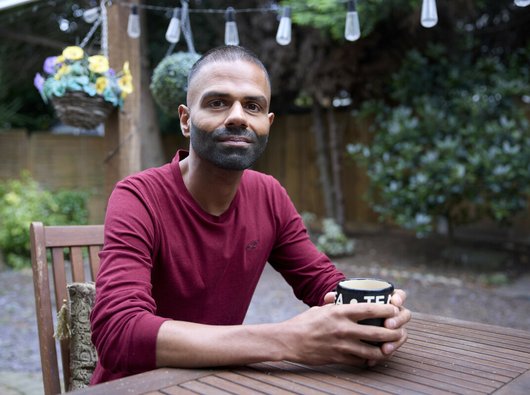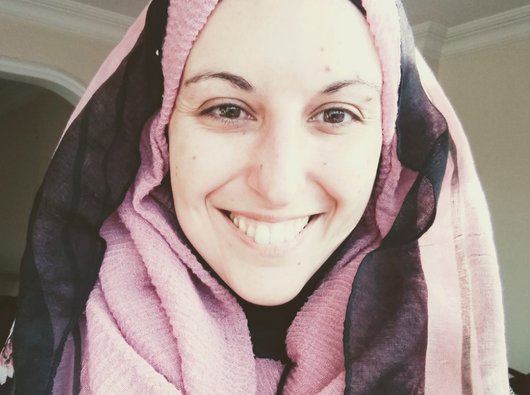Fertility problems
Some blood cancer treatments can reduce your fertility or make you infertile. This can make it difficult or impossible to get pregnant yourself or make someone else pregnant.
If you’ve found out your treatment has affected your fertility, this can be very hard emotionally. It's OK to ask for support.
Will treatment affect my fertility?
Some – but not all – treatments for blood cancer can reduce fertility. It can be a side effect of treatment for leukaemia, lymphoma, myeloma and other types of blood cancer.
For some people the effect on fertility is temporary, and their fertility comes back after treatment. But sometimes reduced fertility caused by blood cancer treatment is permanent. Your hospital team can tell you if the treatment they recommend is likely to reduce your fertility, and if they expect this to be temporary or permanent.
The blood cancer treatments that are most likely to reduce fertility are:
- Some combinations of chemotherapy drugs.
- High-dose chemotherapy. This is often used before a stem cell or bone marrow transplant.
- Radiotherapy to your pelvic area. This can be used to treat lymphoma.
- Total body irradiation (TBI). This is sometimes used before a stem cell or bone marrow transplant, and usually causes permanent infertility.
Reduced fertility can happen because the treatment damages the parts of the body involved in making babies, including:
- ovaries – where eggs are stored
- testes (testicles) – where sperm is made
- the womb – where babies grow during pregnancy.
Some treatments can also affect levels of fertility hormones in your body.
Radiotherapy to the pelvic area and TBI can damage the womb. This can increase the risk of losing a baby during pregnancy (miscarriage).
Using contraception during treatment
It’s important to use contraception during treatment, even if you’ve been told the treatment will reduce your fertility. This is because:
- There’s still a chance you could get pregnant or get someone else pregnant while having treatment.
- Some blood cancer treatments could harm your baby if you got pregnant during treatment. They could also increase the risk of losing the pregnancy (miscarriage).
- Some drugs used in blood cancer treatment can pass into semen (the fluid that carries sperm). This could harm your baby if you got someone pregnant during treatment.
- You may be at high risk from infections during treatment. Using a barrier method like condoms will help protect you from sexually transmitted infections (STIs).
- If you’re having chemotherapy, a small amount of the drugs could be present in your body fluids. To protect your partner during sex, your hospital team might recommend using a barrier method until a few days after treatment.
Ask your hospital team or GP about the best type of contraception to use.
Questions to ask about fertility
- Is the planned treatment likely to affect my fertility?
- Will my fertility come back after a while, or will the effect on my fertility be permanent?
- Can I preserve my fertility before I start treatment?
- Could my treatment harm my baby if I got pregnant or got someone else pregnant while I’m on it?
- Will the treatment cause an early menopause, and if so, what should I expect?
- How will I know if I’m fertile after my treatment has finished?
- When is it safe to start trying for a baby?
- Does the NHS fund fertility preservation and storage in my area?
- Will I need to pay for fertility treatment in the future to use my stored sperm, eggs, embryos or ovarian tissue?
Preserving your fertility before treatment
This section is about preserving fertility before you have treatment. If you’ve already started or finished treatment, you might want to skip this section and read our information further down the page about testing fertility, the emotional impact of infertility, or other ways to have a family instead.
If there's time and you feel well enough, you might be able to have treatment to preserve your fertility before starting blood cancer treatment. If you think you might want children in the future, speak to your hospital team as soon as possible after your diagnosis. They can refer you urgently to a fertility clinic to talk about your options.
Before having fertility preservation you’ll usually need to have a blood test to check for infections such as HIV and hepatitis. Having an infection should not stop you being able to have fertility preservation. But it’s important to check so the fertility clinic can store your samples safely.
Types of fertility preservation include:
Freezing sperm
If you decide to freeze your sperm, the fertility clinic will ask you to give at least one sample of your semen (the fluid that carries sperm). You usually do this by masturbating into a sample bottle, either in a private room at the fertility clinic or at home.
Talk to the fertility clinic if you’re not able to produce a sample by masturbating, as they may be able to remove sperm from your testicle instead.
Once the clinic has a sample of your sperm, they will freeze and store it. You then have the option to use the sperm in the future to make a baby.
Freezing eggs or embryos
If you decide to freeze eggs or embryos, you’ll have daily injections of drugs that stimulate your ovaries to make more eggs than usual. You’ll also have regular blood tests and ultrasound scans to check how the egg stimulation is going. This egg stimulation stage usually lasts about 2 weeks.
When your eggs are ready to be collected, a doctor at the fertility clinic will remove them using a needle. You’ll be sedated or have a general anaesthetic while this happens.
If you are storing embryos, at this stage the eggs that have been collected from you will be mixed with sperm to encourage fertilisation. The sperm can be from your partner, if you have one, or a donor. The eggs that get fertilised grow into embryos.
The fertility clinic will freeze and store the eggs or embryos. You then have the option to use them in the future to make a baby.
Freezing ovarian tissue
This involves a small operation under general anaesthetic to remove one of your ovaries, or pieces of your ovary. The fertility clinic freezes the ovarian tissue and stores it until you are ready to have children.
When you’re ready, the ovarian tissue can be thawed and put back inside you. The aim is that after a few months the tissue should start releasing eggs. This may make it possible for you to get pregnant naturally or with fertility treatment.
Ovarian tissue freezing may be a good option for people when blood cancer treatment needs to start quickly. This is because it can be done straight away without needing to take egg stimulating drugs first. But it’s a new treatment and isn’t available everywhere.
Protecting your ovaries during chemotherapy
Your doctor might suggest taking a medicine called a gonadotropin-releasing hormone (GnRH) agonist to stop your ovaries working during chemotherapy. The aim is to protect them from the chemotherapy drugs. But this treatment isn’t suitable for everyone and doesn’t always work.
Consent and storage: what you need to know
- Your fertility clinic will ask for your consent to store your sperm, eggs, embryos or ovarian tissue. You’ll have several forms to fill in.
- If you freeze embryos with your partner’s sperm, you both need to give consent for storing them and how they can be used. It’s important to talk to your partner about what to do with the embryos if you split up or one of you dies.
- The fertility clinic should arrange for you – and your partner if you have one – to speak to a counsellor so you understand all the issues involved and can give informed consent.
- You can change or withdraw your consent at any time by contacting the fertility clinic.
- Sperm, eggs, embryos and ovarian tissue can legally be stored for up to 55 years in the UK. The fertility clinic will contact you every 10 years to renew your consent.
- It’s important to tell the fertility clinic if you move or change your contact details. If they can’t contact you to renew your consent, they might destroy the sperm, eggs, embryos or ovarian tissue.
"It didn’t even cross my mind at first that myeloma treatment could affect my fertility and I wouldn’t have thought to ask."
Kerry, living with myeloma since 2021
Read Kerry's story about storing embryos before starting myeloma treatment.

Will I have to pay for fertility treatment?
Fertility preservation and storage is usually available free on the NHS for people having cancer treatment. But the rules on who the NHS will fund fertility preservation for, and how long it will pay for storage, vary in different parts of the country. Your hospital team or fertility clinic can let you know what the NHS funds in your area.
Even if the NHS funds your fertility preservation and storage, this does not always mean they will fund fertility treatment for you in the future. There are different rules in different parts of the country about who the NHS will fund fertility treatment for.
This means you might have to pay for private fertility treatment to use your frozen eggs, embryos, sperm or ovarian tissue to make a baby.
The Human Fertilisation and Embryology Authority has information about costs and funding of fertility treatment.
What if fertility preservation isn't possible?
Often people with blood cancer need to start treatment very soon after they’ve been diagnosed. If you need to start treatment straight away, there might not be time to preserve your fertility first. It also might not be possible if you are feeling too ill to give a sample or go through fertility preservation treatment.
Some people are able to have fertility preservation later, in between rounds of treatment. But this isn’t an option for everyone.
It can be very upsetting to hear that your treatment might affect your ability to have children, but there’s no time to have fertility preservation. If you would like to talk about how you’re feeling, call our Support Service free on 0808 2080 888 or email [email protected].
“It was only after I’d gone through treatment that I was really able to think about the impact it had on my fertility.”
Sunny, diagnosed with non-Hodgkin lymphoma in 2019
Read Sunny's story about how he came to terms with the news that treatment would affect his fertility.

Fertility testing after treatment
Talk to your hospital team if you have any questions or worries about your fertility after treatment. They can arrange for you to have tests to check your fertility.
If you don’t see the hospital team anymore, speak to your GP. They can arrange for you to have fertility testing or refer you to a ‘late effects’ clinic. This is a clinic run by doctors and nurses specialising in the long-term effects of cancer and cancer treatment, including fertility.
Usually, doctors refer people for fertility testing after one to two years of trying to get pregnant. But you can be referred earlier than this if you’ve had cancer treatment.
Early menopause
The menopause is when you permanently stop having periods. Once you've gone through the menopause you will be infertile. It usually happens naturally between the ages of 45 and 55.
If your blood cancer treatment affects your ovaries, this can make you have an early menopause. Your hospital team can let you know if this is likely to happen.
The symptoms of early menopause caused by cancer treatment are the same as when the menopause happens naturally. But some people find they come on more suddenly and are more intense.
Symptoms of the menopause include:
- hot flushes
- night sweats
- finding it hard to sleep
- vaginal dryness
- mood swings
If you think you may be having symptoms of the menopause after blood cancer treatment, speak to your GP or hospital team. They can refer you for tests to check if your treatment has caused an early menopause. Your GP can also prescribe treatments to help with the symptoms of the menopause.
Macmillan Cancer Support has information about menopause symptoms and cancer treatment.
The emotional impact of infertility
There's no right or wrong way to feel if you’re told your treatment has affected your fertility. Some people feel completely devastated. For others it might feel less important.
These are some of the emotions people have described when affected by infertility:
- sadness, loss and grief – for many people, finding out they cannot have children in the way they expected is a very real loss. It’s natural to feel sadness at this loss and need to take time to grieve.
- changes to the way you feel about yourself – sometimes, our ability to have children can be an important part of our identity and the way we see ourselves.
- anger – you might feel angry that your plans for having a family have been taken away from you. If fertility wasn’t discussed with you before your treatment, you might feel angry that you weren’t given all the information.
- isolation – you might feel like people around you can’t understand what you’re going through. If you find it hard to be around friends or family who are pregnant or have children, you might distance yourself from them, at least for a while. This can make you feel very isolated.
The emotions around infertility can affect anyone, whether they already have children or not, and whether they are in a relationship or single.
Even if you weren’t sure if you wanted children in the future, you might feel as if this option has been taken away from you. This can be very hard, and it’s understandable if you feel like you’re struggling. But there are some things you can do to help you cope.
Connect with others
You don’t have to go through this alone. You might want to connect with other people going through the same thing on our online community forum. Your hospital team or fertility clinic may also be able to put you in touch with local support groups.
Talk to people
It can help to talk to a partner, close friend or family member about how you’re feeling. You could also contact our free Support Service. You don’t need to have any specific questions, you can just call us to talk about how you’re feeling.
If you have a partner, you might find it difficult to talk to them about infertility. They are likely to be going through their own emotions about it, but might not express them in the same way.
Some couples find it helpful to speak to a counsellor together. This can help you both explore your feelings about infertility together.
Look after yourself
Dealing with infertility is really hard. It’s important to acknowledge this, and be kind to yourself.
We have tips on small things you can do to feel better in your daily life. You don’t need to do them all. Just trying one could help
Ask for support
It’s okay to ask for help. Your hospital team can tell you about options for emotional support, including counselling. You could also ask your GP, or self-refer online on the NHS website in England or through Breathing Space in Scotland.
If you’ve been referred to a fertility clinic, ask if they can arrange for you to see a counsellor specialising in infertility.
Alternative ways to have a family
If you want to have children, there are many options that may be able to help. The options that are right for you will depend on how your fertility is affected, your age, your wishes, values and beliefs.
Donor eggs, sperm or embryos
You can find out more about the different types of fertility treatment available from the Human Fertilisation and Embryology Authority (HFEA) website. They also have information about fertility treatment for LGBT+ people.
Surrogacy
Surrogacy is when a woman, called a surrogate, becomes pregnant and gives birth to a baby for you. This might be an option if you (or your partner if you have one) are unable to carry a pregnancy.
To find out more about surrogacy, you could contact a support organisation such as Surrogacy UK.
Adoption and fostering
Adoption means you become the legal parent of a child. Fostering means you look after a child who can’t stay with their own family. This could be for a short or long time.
You can get details about adoption and fostering from your local social services department, or from an organisation like Adoption UK.
“Adoption is something that’s in my heart and I think about it very often. If a partner materialises I would adopt with them, but if I don’t have a partner I’ll do it by myself.”
Federica, diagnosed with Hodgkin lymphoma in 2007.
Read Federica's story about the impact potential infertility has had on her life.

What people with blood cancer say about infertility
If you're finding things tough, you're not alone. These are some of the things people with blood cancer have said about how fertility problems affected them:
“I had a scan recently confirming I’ve got no eggs left and I’m going through the menopause at 31. Luckily, I have three healthy children already, but it doesn’t make it OK. My husband and I wanted a large family and out of everything that has happened this has been the biggest blow.”
“So many thoughts and emotions. I don’t think I’ll ever come to terms with this.”
“I never wanted children, so it hasn’t changed my plans for the future in that way. What worries me is having an early menopause, and the physical problems that might cause.”
“I had to have a stem cell transplant quite quickly, so that became the focus, and the loss of fertility/early menopause was presented as more of a side effect of the treatment. It feels weird to have almost had an instant menopause rather than progressing through a natural stage.”
“I was advised that the chemotherapy would likely leave me infertile, but because I was starting treatment in a few hours, I did not have time to consider seeing a fertility doctor or discussing the option of freezing my sperm. Accepting this was really tough and left me devastated.”
We've started a thread on our online forum as a place to share your experience and get support from others.

Talk to other people affected by blood cancer
Hear from and connect with people who understand.
